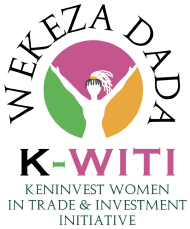Equity to spend Sh20bn in plan to boost farming
Equity Group Foundation is committing Sh20 billion in the next five years in a plan to transform farming into commercial ventures through loans to medium-sized farmers. Through its Agriculture Entrepreneurship Accelerator Programme, the foundation seeks to benefit farmers with 10-100 acres to turn farming into serious commercial enterprises — enhancing food security and bridging the annual deficit. The scheme will see beneficiaries get a minimum of Sh1 million with the bank targeting 20,000 farmers under the programme. “Basing on the success that we have had on our pilot study, I can say confidently that we are going to spend up to Sh20 billion in the next five years under this programme,” says Equity chief executive officer James Mwangi. The bank and the embassy of Netherlands have been running a three-year Sh341 million Agriculture Entrepreneurship Accelerator Programme that targeted medium-sized farmers in Eastern, Central and Rift Valley regions. Challenges Mr Mwangi said the foundation will continue to work with industry partners to intervene on areas where the project beneficiaries still face challenges that hinder them from realising increased farm income. The project, said Mr Mwangi, has directed its activities to facilitate production related trainings such as soil health and crop management, dairy production, water management and post-harvest handling. Mr Mwangi noted that enhancing the agricultural value chain amongst farmers will play a key role in ensuring food security in the country. The Netherlands Ambassador Frans Makken noted that food systems must not only be able to provide food security to the growing world population but must also deliver diverse, nutritious diets that are affordable and accessible to all. Climate change “Improved agricultural productivity must be coupled with increased resilience to climate change and reduced greenhouse gas emissions. “In addition, for agriculture to deliver on its full potential, value chains must be strengthened. Mr Makken said his government will continue supporting organisations that see the need to support farmers in their endeavours. Equity Bank and the Ministry of Agriculture last year signed a Sh300 million agreement to finance farmers under phase two of the Agricultural Credit Guarantee Scheme (ACGS), in which the government provides collateral. Source: Business Daily








